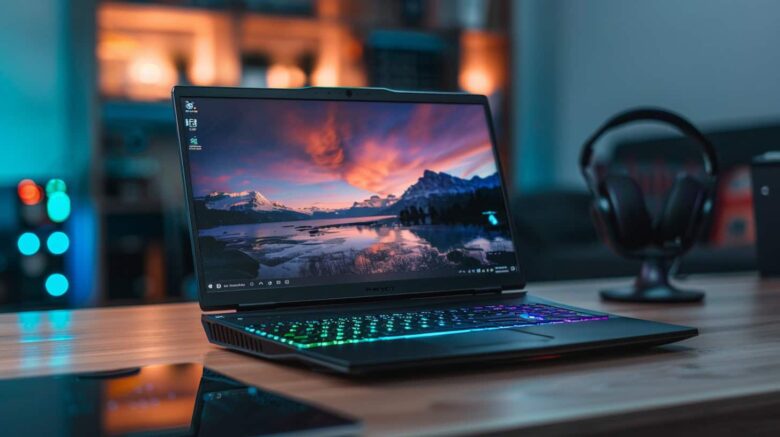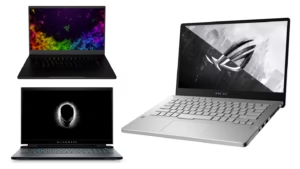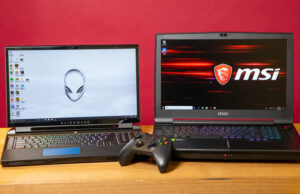Gaming laptops typically last anywhere between one to five years depending on their hardware specifications, although their lifespan can be extended by staying up-to-date and keeping it clean.
Overheating during long gaming sessions must also be prevented by employing cooling pads or fans and cleaning your laptop on an ongoing basis.
Power
Gaming laptops possess plenty of power, which explains their longer lifespan than regular laptops. Gaming laptops usually boast faster CPUs, more RAM and storage, and an superior graphics card than non-gaming models – all upgrades that improve performance for more immersive gaming sessions and reduce wear-and-tear. Gaming laptops also typically include improved cooling systems to prevent overheating or wear and tear issues.
A gaming laptop’s lifespan depends on its internal components, usage patterns and maintenance schedules. On average, mid-range laptops typically last three to four years while high-end gaming laptops may last five years, though these numbers can differ depending on various factors.
Playing video games in hot environments or placing your laptop on surfaces that block its fans can quickly cause it to overheat. This causes internal components to overheat, degrading thermal paste and wearing out hardware faster. A proper cooling system will keep your laptop cool while preventing overheating – thus prolonging its lifespan.
Gaming laptops may have a shorter lifespan when not updated to keep pace with the latest computer games, causing issues like long load times and poor frame rates. Staying informed on new game releases while keeping gaming sessions to an hour or less per session can extend its life.
Battery
Gaming laptops typically boast powerful processors, high-end graphics cards and complex cooling systems designed for heavy use in intensive gameplay environments, making them vulnerable to faster wear-and-tear than standard laptops. There are various strategies you can employ to extend the lifespan of a gaming laptop’s useful life – regular maintenance checks, preventing overheating issues and keeping up with hardware advancements will keep it performing optimally for longer.
Gaming on battery power will cause your laptop’s performance to decrease significantly compared to when connected directly, since batteries don’t offer equivalent levels of performance. To extend its life and keep you gaming for longer, close any unnecessary applications or services and minimise use of keyboard and trackpad; additionally install a program that monitors CPU temperature to prevent overheating.
As leaving your laptop on at all times can damage its battery, it is wise to maintain its charge between 98%-93% of maximum. It may be beneficial to allow its charge to drop completely every so often in order to calibrate cells properly. You can improve performance by closing applications that you no longer require and cleaning up hard drives regularly – or consider an SSD upgrade with faster read/write speeds and longer lifespan.
Graphics card
Gaming laptops are specifically tailored for gamers, so their hardware tends to be of the highest-grade. This includes powerful processors and graphics cards necessary for an enjoyable gameplay experience. Their longevity depends on several factors including their usage trends and maintenance schedule. An overheated gaming laptop or failing to keep up with software updates could reduce its lifespan considerably; so when shopping for one it is wise to look for models equipped with effective cooling systems.
Gaming laptop lifespans are determined by their internal components. Over time, these can wear out or slow processing speed due to prolonged gaming sessions or dust accumulation on its internal components. Failing to perform regular maintenance practices such as cleaning the cooling vents or updating software could shorten its life even more rapidly.
Technology continues to advance at an unprecedented rate, making it essential for gamers to use an up-to-date gaming laptop equipped with all of the latest software and features. If your laptop is outdated it could affect game performance negatively; gaming laptops offer great portability and performance compared to desktop systems; however they’re costly so be mindful when choosing one to best meet your gaming needs and budget constraints.
Cooling system
Gaming laptops are used for long gaming sessions that put undue strain on their hardware, placing strain on their cooling systems to keep temperatures down and prevent overheating of components. A strong cooling system will extend their lifespan.
Since gaming laptop components, such as CPU and GPU, cannot easily be changed or upgraded, the quality of design and cooling performance can have an enormous effect on their lifespan. Furthermore, choosing one with high-grade physical construction to prevent damage over time is also critical.
A gaming laptop’s lifespan depends on many factors, including maintenance, software optimization and how the laptop is used. To maximize performance and longevity it is wise to purchase one with a sturdy body, an effective cooling system that effectively manages heat management, regular updates to optimize performance and longevity and an extended warranty and customer support plan for quick solutions in case any hardware failures arise. In addition it is crucial to take into account power requirements of games being played as well as potential new technology that may require a more powerful system to run effectively.




